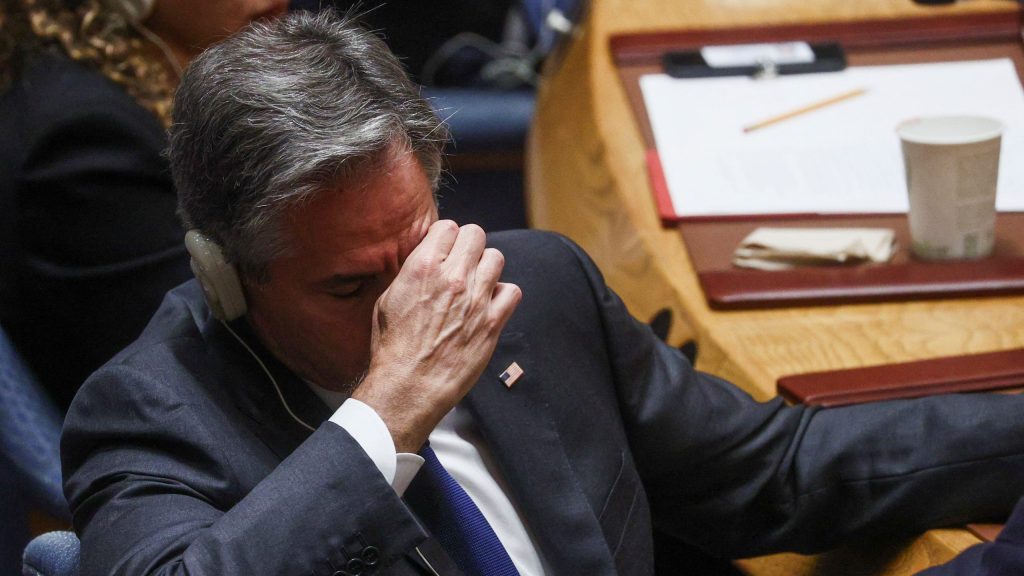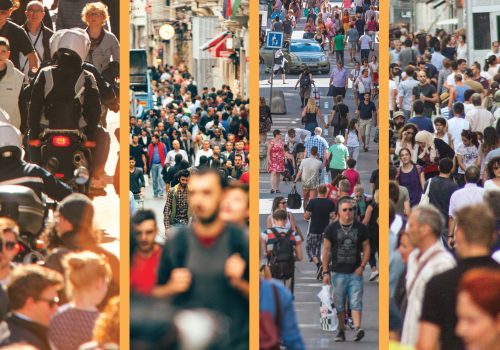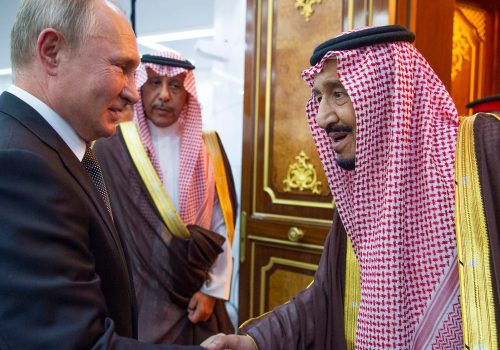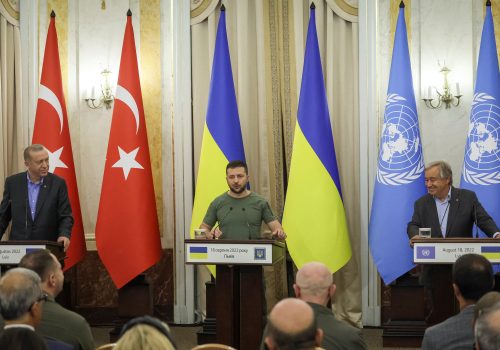The United Nations (UN) General Assembly is gathering this week at a precarious time for multilateralism. Global economic uncertainty and a major war in Europe have put escalating pressure on the kinds of cooperation and institutions that flowered following World War II and have helped lift millions of people from poverty, promote shared prosperity, and avoid major conflicts. But it will not be possible to solve twenty-first-century challenges with a system designed for the twentieth century. This is an urgent moment to rethink and reform these vital institutions.
The massive economic gains and relative peace of the second half of the twentieth century owe much to this post-war global architecture, which includes the UN, the World Bank, the International Monetary Fund (IMF), NATO, the World Health Organization, and the World Trade Organization (WTO). But the upheaval in recent years from the 2008 global financial crisis and the US-China trade war to the COVID-19 pandemic has produced a rising tide of nationalism and protectionism—a kind of global pushback against multilateralism.
Russia’s invasion of Ukraine this year represented a failure of these multilateral institutions to stop a major war. But as organizations such as NATO have found renewed purpose in coming to Ukraine’s aid and punishing Russia, the conflict has underscored the importance of these institutions. On its own, a single nation cannot contain Russian aggression any more than it can take on the other pressing problems of our age, such as climate change, socioeconomic inequality, food insecurity, supply-chain disruptions, or inflation. Solving these problems will require an inclusive global compact that transcends governments, the UN, and specialized organizations.
Here are three places to start:
First, the multilateral system needs to be restructured from closed to more collaborative, with more trust-building cooperation between regional and global organizations. While the UN’s work with the Association of Southeast Asian Nations (ASEAN) is a good illustration of regular and active cooperation, today’s networked world calls for increased efforts. They must be framed within a broader multilateralist discussion that fosters inclusivity and provides a mechanism for regional concerns to be fed into policy decisions. Partnerships like this need to be guided by pragmatism, with each organization building on its strengths. Regional organizations, for instance, have historical ties and can be more capable of implementing global policies due to their knowledge of regional challenges. More interactions between the UN and regional organizations will build trust, maximize efficiency across all UN domains, and establish knowledge-transfer mechanisms. To put this vision into practice, an independent expert body should map out the regional organizations’ capabilities in different areas such as security and conflict resolution. Then, the UN should establish an official partnership with selected regional organizations, which could include regular meetings between the leaders of members of the UN Security Council and heads of the regional organization, or an annual meeting for top UN officials from the Security Council, General Assembly, UN agencies, and all regional organizations.
Second, the Bretton Woods Institutions must utilize their capabilities to enhance investments in global public goods. These are broadly shared, non-exclusive benefits such as the environment, health, peace, security, and technology. In today’s interconnected global economy, climate change, pandemics, financial crises, and regional conflicts create cascading challenges across borders, with the most acute effects often felt among the poorest countries and marginalized communities. Investing in global public goods will compete with traditional financial assistance. However, today’s agenda has shifted from country-specific issues to global ones. This requires multilateral banks to pivot away from their traditional country-focused models and prioritize global public goods investments. This is crucial for promoting the sustainable advancement of poor and rich countries, enabling inclusive economic growth, and reducing poverty and inequality. One way to accomplish this is through enhanced partnerships with regional development banks to facilitate public goods investments in low-income countries.
Third, the new multilateralism must embrace its global role in driving data governance and the digital economy. While data presents incredible opportunities, it also poses risks in terms of misuse and cybersecurity. There are many governments attempting to leverage the global digital economy for domestic economic growth, but dozens of governments have enacted measures that prevent data from flowing across borders. Multilateral organizations such as the WTO should establish data-governance frameworks and common standards to combat the trend of data localization and foster cross-border data sharing and public-private data collaboration. They should also play a role in helping governments maintain a strong national statistical system, develop talent, and foster cybersecurity solutions and data-governance policies. Also, more actions are needed to enable governments to utilize data ecosystems. For instance, the UN Development Program and the Office of the UN Secretary-General’s Envoy on Technology are promoting the concept of open technology, This concept aims to enable the development of solutions that are made available for anyone to adapt. Examples are digital public goods (DPGs), such as open source software, and digital public infrastructure (DPIs), such as payment systems. Moving forward, it is key to further develop country capacity, which requires multilateral actors to come together so that no one is left behind in the deployment of DPGs-DPIs.
The world leaders gathering in New York this week face a world growing more volatile by the day—and they are acting within a system ill-equipped to handle the moment. To meet today’s challenges and take advantage of tomorrow’s opportunities, they must change how they work and rethink multilateralism.
Yomna Gaafar is an assistant director at the Atlantic Council’s Freedom and Prosperity Center.
Further reading
Wed, Jun 1, 2022
Do countries need freedom to achieve prosperity?
Report By Dan Negrea, Joseph Lemoine, Matthew Kroenig, Joel Kesselbrenner
The Freedom Index and Prosperity Index are two separate indexes that rank one hundred and seventy-four countries around the world according to their levels of freedom and prosperity.
Thu, Sep 8, 2022
Why US allies in the Middle East aren’t taking sides in the Ukraine war
New Atlanticist By Mark N. Katz
Staying neutral, or balancing between the two sides, may be the best that Washington can expect.
Fri, Sep 2, 2022
How Turkey can play a more constructive role in Russia’s war on Ukraine
TURKEYSource By Yevgeniya Gaber
For Ankara to create regional peace and stability, it must boost support to Kyiv rather than pressure it into compromise.
Image: US Secretary of State Antony Blinken attends a high-level meeting of the United Nations Security Council at the UN Headquarters in New York on September 22, 2022. Photo by Amr Alfiky/REUTERS



